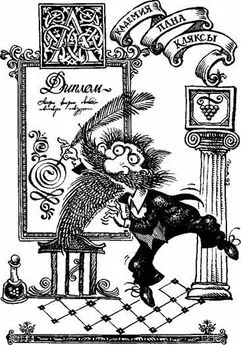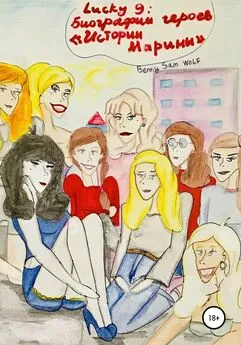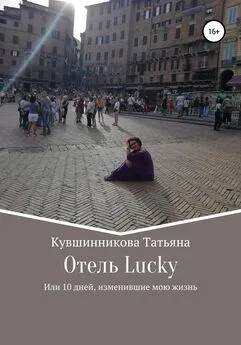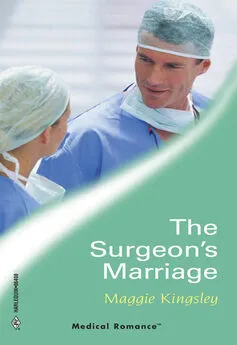Kingsley Amis - Lucky Jim
- Название:Lucky Jim
- Автор:
- Жанр:
- Издательство:неизвестно
- Год:неизвестен
- ISBN:нет данных
- Рейтинг:
- Избранное:Добавить в избранное
-
Отзывы:
-
Ваша оценка:
Kingsley Amis - Lucky Jim краткое содержание
Lucky Jim - читать онлайн бесплатно полную версию (весь текст целиком)
Интервал:
Закладка:
'Now you mention it, I did think it looked a bit odd.'
Beesley began eating toast and marmalade. Chewing angrily, he went on: 'He's bought himself a pair of hair-clippers. I found them in the bathroom yesterday. Cuts his own hair now, you see. Too sodding mean to pay out his one-and-six, that's what it is. My God.'
This, then, was why, from the back, Johns appeared to be wearing a blatant toupee which had slipped over slightly to one side, and why, from the front, his face appeared to be surmounted by a curious helmet. Dixon was silent, thinking that Johns had at last done something he rather respected.
'What's up, Jim? You don't look too happy.'
'I'm all right.'
'Still worrying about the lecture? Look, I've got those notes on The Age of Chaucer I promised you. They're not very exciting, but there'll be a few things you can probably use. I'll stick them in your room.'
Dixon cheered up again; if he could dare to wait long enough, he might be able to construct the rest of his lecture entirely out of others' efforts. 'Thanks, Alfred,' he said; 'that'll be fine.'
'Going up to College at all?'
'Yes, I want to see Barclay.'
'Barclay? I shouldn't have thought you'd have much to say to him.'
'I want to pick his brains on medieval music.'
'Ah, got you now. Going up straight away, are you?'
'In a few minutes.'
'Grand, I'll go up with you.'
It was a warm day, but overcast. As they strolled up College Road, Beesley began talking about the examination results in his Department. The visit of the External Examiner at the end of the week would settle a number of doubtful cases, but the main outlines of the results were already clear. The position was the same in Dixon's own Department, so that there was something to discuss.
'One thing I like about Fred Karno,' Beesley said, 'though it's about the only thing when I come to think of it: he'll never try to push anyone through that he doesn't really think's worth it. No Firsts this year for us, four Thirds, and forty-five per cent of the first-year people failed; that's the way to deal with 'em. Fred's about the only prof. in the place who's resisting all this outside pressure to chuck Firsts around like teaching diplomas and push every bugger who can write his name through the Pass courses. What's Neddy's angle on the business? Or hasn't he got round to getting one yet?'
'That's right. He leaves most of it to Cecil Goldsmith, and that means everyone gets through. Cecil's a tender-hearted chap, you know.'
'Tender-headed, you mean. It's the same everywhere you look; not only this place, but all the provincial universities are going the same way. Not London, I suppose, and not the Scottish ones. But my God, go to most places and try and get someone turfed out merely because he's too stupid to pass his exams - it'd be easier to sack a prof. That's the trouble with having so many people here on Education Authority grants, you see.'
'How do you mean? The students have got to get their money from somewhere.'
'Well, you know, Jim. You can see the Authorities' point in a way. "We pay for John Smith to enter College here and now you tell us, after seven years, that he'll never get a degree. You're wasting our money." If we institute an entrance exam to keep out the ones who can't read or write, the entry goes down by half, and half of us lose our jobs. And then the other demand: "We want two hundred teachers this year and we mean to have them." All right, we'll lower the pass mark to twenty per cent and give you the quantity you want, but for God's sake don't start complaining in two years' time that your schools are full of teachers who couldn't pass the General Certificate themselves, let alone teach anyone else to pass it. It's a wonderful position, isn't it?'
Dixon agreed rather than disagreed with Beesley, but he didn't feel interested enough to say so. It was one of those days when he felt quite convinced of his impending expulsion from academic life. What would he do afterwards? Teach in a school? Oh dear no. Go to London and get a job in an office. What job? Whose office? Shut up.
They entered the main building in silence, went into the Common Room, and moved over to their pigeon-holes. Dixon took out of his a reminder that he hadn't yet paid his Common Room subscription for the year and a postcard, addressed to Jas Dickson Esq BA , informing him of the publication of some flatulent work on textile trades in the time of the Tudors. These he dropped into the wastepaper-basket with the maximum of dispatch. Beesley was looking through a newly-arrived issue of the journal of university affairs to which he subscribed, muttering to himself. There was nobody else in the room. Before rousing himself to find Barclay, Dixon, feeling he could do with a sit-down at the start of such a day, dropped into an armchair and yawned.
In a moment or two Beesley came over, holding his journal open. 'Something that'll interest you here, Jim. "New appointments. Dr L. S. Caton to the Chair of History of Commerce, University of Tucuman, Argentina." Isn't that the chap you sent your article to?'
'Christ, let me have a look.'
'You'd better get through to him a bit sharpish, before he escapes on the banana-boat. Looks as if his new review'll be packing up, unless he thinks he can edit it from there.'
'Oh God, this looks pretty bad.'
'I should get through to him on the blower if I were you.'
'Oh God. Yes, I will. Well, thanks for pointing it out to me, Alfred. I'd better find Barclay before he gets a job out there too.'
A prey to vague but powerful misgiving, Dixon hurried out and over to the Music School, where, to his surprise, Barclay proved to be present, available, cooperative, and in possession of just the sort of book Dixon wanted. Feeling a little less disturbed, Dixon went round with it to the library and obtained, with almost sinister promptitude, a book on medieval costume and furniture. In the revolving door on the way out, his movement was abruptly checked by the intervention of somebody outside trying to revolve the door in the opposite, and (according to several large, well-designed notices) wrong, direction. It was Welch, looking suspiciously about him, stepping back with a frown as Dixon went on pushing and emerged by his side.
'Good morning, Professor.'
Welch recognized him almost at once. 'Dixon,' he said.
'Yes, Professor?' Dixon had forgotten until now Margaret's report that Welch, in common with the other members of his family, was 'out for his blood'. How would Welch manifest his pursuit of that entity?
'I was wondering about the library,' Welch said, rocking to and fro on his heels. He was looking more than usually wild-eyed and dishevelled this morning. There was a small golden emblem on his tie resembling some heraldic device or other, but proving on closer scrutiny to be congealed egg-yolk. Substantial traces of the same nutritive were to be seen round his mouth, which was now ajar.
'Oh yes?' Dixon asked, hoping to encourage Welch to indicate what point, within the framework of ideas connected with the library, could be taken as the focus of his wonderment.
'Do you think you could go there?'
Dixon began to feel definitely alarmed. Had Welch's long-heralded derangement finally come to pass? Or was this a bitterly sarcastic way of alluding to Dixon's own disinclination to approach any possible arena of academic work? Badly rattled now, he stole a glance over his shoulder to make sure that they were, in fact, standing within two paces of the library entrance. 'I expect so' seemed the safest sort of reply.
'You're not overburdened with work just now?'
'Just now?' Dixon bleated. 'I don't think I…'
'I was thinking of your lecture for Wednesday. I suppose most of it's complete by now?'
Dixon shifted the two books he had under his arm, in case Welch might be able to see their titles. 'Oh yes,' he said wildly. 'Professor. Yes.'
'I haven't got time to go to the library, you see,' Welch said in the tone of one removing the last trivial obstacle in the way of complete understanding. 'I've got to go in here,' he added, pointing towards the library.
Dixon nodded slowly. 'Oh, you've got to go in here,' he said.
'Yes, one or two points have come up in the examination answers. I want to check them up before the External Examiner's meeting tomorrow. You'll be all right for that, I take it? Five o'clock in my room.'
Christine was meeting Dixon at four o'clock the next day. Even with a taxi he could only have three-quarters of an hour with her. He wanted to bundle Welch into the revolving door and whirl him round in it till lunch-time. He said: 'I'll be there.'
'Good. Well, you can see that I shan't be able to spend any time pottering about looking things up in the library.'
'Oh, quite.'
'It's good of you to do this for me, Dixon. Now, as regards what I want from the library: it's all down here.' By degrees, he drew a sheaf of papers from his breast pocket and unfolded them. 'It's all quite self-explanatory, you'll find. The reference is down in nearly every case, I think… yes. Oh, there are a few here, yes, without… just long shots, really. I don't suppose there's much of value, if anything, but you might just look through the subject indexes. If there aren't any, then you'll just have to use your own… your own… The chapter titles will probably help you there. This one, for instance, you see. Just see if there's anything relevant. I shouldn't think there would be from the date. But you never know your luck, do you?' He scrutinized Dixon's face, seeking confirmation.
'No, you don't.'
'No, you don't. I remember being held up for weeks once over a thing I was doing, just because of one missing fact. It seems that in the autumn of 1663… no, the summer…'
Dixon now had some of the basic facts clear. He was being asked to fill certain gaps in Welch's knowledge of the history of peasant arts and crafts in the county, and these papers, written in Welch's pointlessly neat and clear hand or typed by him with hilarious inaccuracy, would enable him, Dixon, to perform his task without all that much confusion, though not without some loss of time and integrity. Still, he daren't refuse; this sort of task might easily, to Welch, seem a more important test of ability than the merit of the Merrie England lecture. So much was obvious; but what was all this business about the library? When Welch's silence indicated the end, or possibly the abandonment, of the anecdote, Dixon asked: 'Will they have all this information here, sir? I mean, some of these pamphlets must be pretty rare. I should have thought the Record Office would have…'
Welch's expression was slowly adapting itself to incredulous rage. In a high, petulant tone he said: 'No, of course they won't have the information here, Dixon. I can't imagine any one thinking they would. That's why I'm asking you to go down to the library for it. I know for a fact they've got ninety per cent of the stuff I want. I'd go myself, but as I took the trouble to explain, I'm tied up here. And I must have the information by tonight, because I'm giving the talk tomorrow evening after Professor Fortescue gets… goes… goes back. Now do you see?'
Dixon did: Welch had all the time been talking about the public library in the city, and, since this was clear to him, naturally hadn't thought of the confusion he might cause by talking about 'the library' within five feet of a totally different building known in the area as 'the library'. 'Oh, of course, Professor; I'm sorry,' he said, having been well schooled in giving apologies at the very times when he ought to be demanding them.
'All right, Dixon. Well, I won't hold you up now; I expect you'll want to get started if you're to finish by five. You'd better come up to my room afterwards and show me what you've got. It's very kind of you to offer to help; I appreciate it very much.'
Читать дальшеИнтервал:
Закладка:







